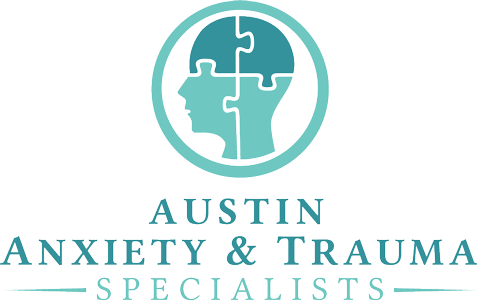The world is rapidly changing, and so is the way we approach mental health care. The COVID-19 pandemic shifted the way we approach healthcare, and mental health care is no exception. With social distancing guidelines and restrictions on in-person gatherings, mental health professionals adapted to provide online therapy as a convenient and accessible alternative to traditional in-person sessions. Today, virtual therapy remains relevant, and many therapy practices continue to treat clients through phone or video calls.
But which is better—in-person therapy, or online therapy? In this blog post, we’ll explore the pros and cons of both and highlight the latest research supporting the effectiveness of virtual care.
Pros and Cons of In-Person Therapy
In-person therapy is the traditional form of therapy, and it comes with its own set of pros and cons. Here are some of the benefits:
- Face-to-face interaction: In-person therapy allows you to meet your therapist face-to-face, which can be comforting, reassuring, and potentially easier to perceive empathy from your therapist. It can also be easier to build a relationship with your therapist when you can see their facial expressions and body language in person.
- A dedicated space: When you attend in-person therapy, you’ll have a dedicated space to focus on your mental health. This can be especially helpful if your home environment is noisy or distracting.
- Fewer technical issues: With in-person therapy, you don’t have to worry about technical issues like internet connectivity, sound quality, or video lag.
However, there are also some drawbacks to in-person therapy:
- Limited access: If you live in a rural area or have mobility issues, it may be difficult to access in-person therapy. You may also struggle to find a therapist who specializes in the type of therapy you need.
- Cost: In-person therapy can be more expensive than online therapy, especially if you need to travel to the therapist’s office.
- Time: Attending in-person therapy can take up a significant amount of time, especially if you have to travel to the therapist’s office. People with busy lives may find the time commitment inconvenient, and those with anxiety or stress might not attend sessions for this reason.
Pros and Cons of Online Therapy
The Anxiety & Depression Association of America states that several types of therapy can be provided online and are just as effective as in-person therapy, including but not limited to Cognitive Behavioral Therapy (CBT), Dialectical Behavioral Therapy, and Eye Movement Desensitization and Reprocessing (EMDR) therapy. Here are some of the pros of online therapy:
- Convenience: With online therapy, you can attend sessions from anywhere with an internet connection. This can be especially helpful if you have mobility issues, live in a rural area, or have a busy schedule. Some mental health apps also offer telehealth services, providing convenience and accessibility for individuals without access to in-person therapy.
- Lower cost: Online therapy is often less expensive than in-person therapy, as you don’t have to pay for travel costs or office overhead.
- Access to specialized therapists: Online therapy allows you to access therapists who specialize in the type of therapy you need, regardless of where you live.
- Anonymity: Online therapy provides a level of anonymity that in-person therapy can’t offer. This can be especially helpful if you feel uncomfortable talking about your mental health in person.
However, there are also some cons to online therapy:
- Technical issues: Technical issues like internet connectivity, sound quality, and video lag can disrupt the flow of therapy.
- Limited nonverbal cues: Online therapy can make it harder to pick up on nonverbal cues like body language and facial expressions, which can be important for building a relationship with your therapist.
- Privacy concerns: There may be concerns about privacy and confidentiality when attending therapy online, as you are relying on technology to protect your personal information.
Read: Put Telephobia on Hold (for Good)
Is Online Therapy Effective?
One of the biggest concerns people have about online therapy is whether it’s effective. After all, how can a therapist help you if they’re not in the same room as you? The good news is that numerous studies have proven that online therapy can be just as effective as in-person therapy.
For example, a study published in the Journal of Cognitive Behavioral Therapy found that online CBT is just as effective as in-person CBT for treating depression and anxiety disorders. Another study found that symptoms of Post-Traumatic Stress Disorder (PTSD) improved equally after virtual and in-person CBT sessions.
But what about EMDR therapy, a type of therapy that is often used to treat trauma? EMDR therapy involves the use of eye movements or other forms of bilateral stimulation to help patients process traumatic experiences. One study compared in-person EMDR therapy to its treatment online and found no significant differences in treatment outcomes between the two groups. A multitude of other studies have also provided its efficacy in treating PTSD, trauma, stress, and suicidal ideation.
It’s important to note that online therapy may not be appropriate for everyone. For example, if you have severe mental health issues or require more intensive or physical treatment, in-person therapy may be a better option. However, for many people, online therapy can be just as effective as in-person therapy.
Read: EMDR Therapy in 8 Phases (Take a seat, PTSD)
How to Choose Between In-Person and Online Therapy
Choosing between in-person and online therapy ultimately depends on your personal preferences and circumstances. Here are some factors to consider when making your decision:
- Accessibility: If you live in a rural area or have mobility issues, online therapy may be a more accessible option for you.
- Convenience: If you have a busy schedule or travel frequently, online therapy may be more convenient for you.
- Personal preference: Some people prefer the face-to-face interaction of in-person therapy, while others prefer the anonymity of online therapy.
- Cost: If cost is a concern, online therapy may be a more affordable option for you.
Regardless of whether you choose in-person or online therapy, it’s important to find a therapist who is experienced and qualified to help you with your specific mental health needs. At Austin Anxiety and Trauma Specialists, we offer both online therapy sessions to all residents of Texas. Our therapists specialize in a variety of mental health issues, including anxiety, depression, and trauma—and the treatments proven to help. Schedule your first appointment with us and we’ll help you start your healing journey.
It can get better. We can help.






